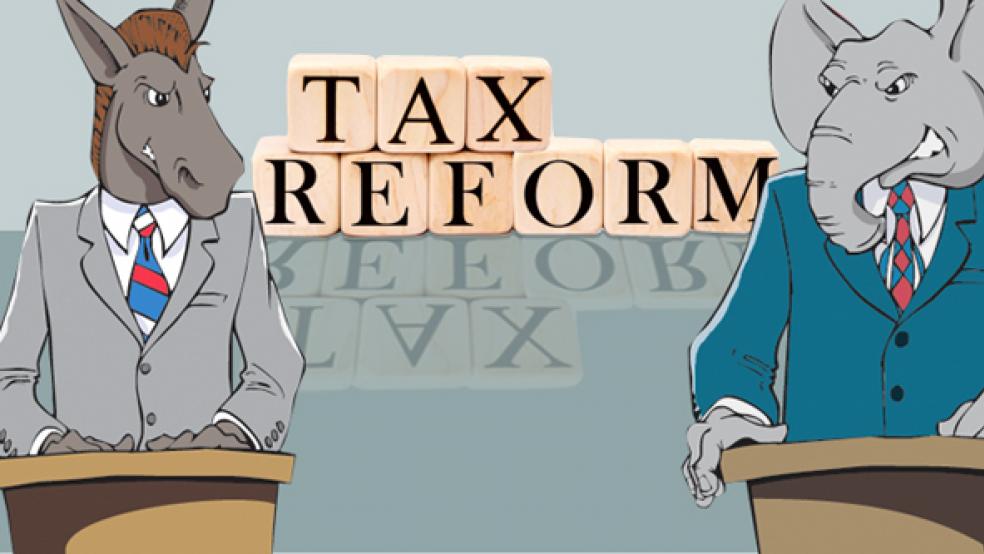House Freedom Caucus Chair Mark Meadows made some news last month when, just days after his group helped kill the health care reform bill favored by House leadership and the Trump administration, he signaled that they would be open to compromise on a tax reform bill by not insisting that tax cuts be offset by replacement revenue or spending cuts. But on Tuesday he made it clear that the ultra-conservative Freedom Caucus’s willingness to cooperate comes with conditions and a not-so-subtle reminder that what the Caucus members did to the American Health Care Act can be done to any tax reform bill.
Specifically, Meadows insisted that unlike the effort to repeal the Affordable Care Act, any tax reform bill would have to be written with the active participation of the Freedom Caucus. The failed AHCA, by contrast, was written in virtual secrecy, and members only learned of its details through the media.
Related: Chair of Freedom Caucus Open to Deficit-Expanding Tax Cuts
“When a member sees the text for the first time in a leaked draft from Politico, therein is a problem,” he said late Monday, as the GOP worked in vain to revive the health care bill.
The structure of the House Republican majority is such that, when the Freedom Caucus signals that it has a problem, that means House leadership also has a problem. Republicans hold a comfortable majority in the House if they all stick together, but the Freedom Caucus has, over the years, demonstrated a willingness to walk away from legislation supported by the majority of the House GOP if it doesn’t meet their standards of ideological purity. Because its three dozen members are enough to deprive the GOP of a majority on the House floor, when that happens, Republican legislation crafted without Democratic support dies.
While it may seem only sensible for House leadership to make sure the Freedom Caucus has a seat at the table as they try to write a bill overhauling the tax code, the danger is that including them in advance means the bill dies a slow, lingering death rather than a relatively quick one, like the AHCA’s.
The default Freedom Caucus position on issues it considers vital tends to be maximalist and uncompromising, as House leadership re-learned during the battle over the AHCA. The group’s hardcore members were unwilling to support a bill that gave them most of what they wanted
Related: New Obamacare Repeal Plan Would Leave the Hard Decisions to the States
Former Freedom Caucus chairman Jim Jordan has already come out against something expected to be a major element of any plan backed by House leadership: a border adjustment tax that would benefit US exporters and penalize importers. His objection to it is seemingly not grounded in policy, per se, so much as in a blanket unwillingness to create a new tax, even in the context of reform that would do away with other kinds of taxes.
“My reasoning is very basic,” Jordan said in an interview with The Atlantic. “Why in the world would we want to add another revenue stream?...We come at it from a fundamental perspective. The idea that you’re going to add an entirely new tax is a big problem.”
If it turns out that being “at the table” just means that the Freedom Caucus can start presenting its ultimatums earlier in the negotiation, including them is likely a recipe for another legislative failure, albeit one that plays out over months rather than weeks.
Related: Has Trump Overplayed a Losing Hand in His First Legislative Test?
The real wild card here is public opinion. President Trump has already shown his willingness to attack Freedom Caucus members on social media, and while that didn’t have much of an effect on them during the health care debate, it’s conceivable that if a tax reform proposal can be presented as a major tax cut for Middle America that still keeps popular government programs in place (a dubious prospect, but still,) the politics could change.
As Molly E. Reynolds of the Brookings Institution points out, “The [House Freedom Caucus] may find the politics of opposing tax reform on principle more difficult than their obstruction on health care. So we’ll have to wait and see.”





